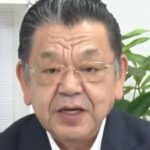Sanae Takaichi and Japan’s Economic Security Strategy 2025
Japan’s Economic Security in a Volatile World
In an era defined by geopolitical instability and rapid technological disruption, economic security has emerged as a central pillar of Japan’s national strategy. The global economy faces unprecedented challenges—ranging from semiconductor shortages and energy crises to cyberattacks and supply chain fragmentation. For Japan, a country heavily dependent on global trade and foreign technologies, these risks are not abstract threats but immediate strategic concerns.
Amid these global shifts, Sanae Takaichi, Japan’s Minister of Economic Security, has taken a decisive leadership role. Her mission is clear: to protect Japan’s technological sovereignty, fortify supply chains, and ensure that critical industries remain resilient against foreign influence or disruption. Takaichi’s policy vision aligns closely with Japan’s broader goal of achieving strategic autonomy—the ability to sustain economic and technological growth without excessive dependence on other powers.
Global Pressures Reshaping Japan’s Economic Policy
The COVID-19 pandemic, the U.S.-China tech rivalry, and Russia’s invasion of Ukraine collectively exposed the fragility of global interdependence. Japan, once confident in its open-market model, realized the vulnerabilities of relying on foreign suppliers for essential goods such as semiconductors, energy, and critical minerals. These realities forced a policy transformation: economic security is no longer a secondary concern but a national priority at the highest level of government.
Under Takaichi’s direction, Japan’s economic security strategy now emphasizes three pillars:
- Technological Sovereignty — safeguarding domestic R&D in advanced sectors such as AI, quantum computing, and semiconductors.
- Supply Chain Resilience — diversifying imports and building regional partnerships to reduce single-source dependencies.
- Cyber and Data Protection — strengthening Japan’s ability to defend against digital espionage and data theft.
From Passive Policy to Strategic Intervention
Historically, Japan relied heavily on market mechanisms to maintain economic stability. However, Takaichi’s leadership marks a shift toward proactive state involvement. The government now offers subsidies for semiconductor production, invests in cybersecurity infrastructure, and forms alliances with technology partners to safeguard national interests. This approach reflects a broader trend in advanced economies, where economic security is increasingly intertwined with national defense.
By reframing economic security as a cornerstone of Japan’s sovereignty, Takaichi has positioned herself as a key figure shaping not only Japan’s domestic policies but also its role in the international order. Her initiatives set the tone for the coming decade—one defined by resilience, technological leadership, and strategic independence.
Who Is Sanae Takaichi? A Brief Profile of Japan’s Economic Security Minister

Sanae Takaichi stands among Japan’s most influential conservative politicians. As of 2025, she serves as Minister of Economic Security, a cabinet position established to address Japan’s growing concerns over technological dependence, cyber vulnerabilities, and geopolitical risks. Her appointment reflects both her deep policy expertise and her firm stance on protecting Japan’s sovereignty in an increasingly unstable world.
Early Career and Political Philosophy
Born in Nara Prefecture in 1961, Takaichi began her career in technology before entering politics. Educated at Kobe University and later studying at the University of California, she developed a global perspective that would later influence her economic and security views. She entered the House of Representatives in 1993 and quickly built a reputation for discipline, policy knowledge, and nationalist ideals.
Takaichi is a long-time member of Japan’s ruling Liberal Democratic Party (LDP), known for her alignment with its conservative wing. She advocates for a robust defense policy, fiscal discipline, and technological self-reliance. Her philosophy is grounded in the belief that Japan’s prosperity depends on its capacity to innovate domestically while minimizing foreign control over critical assets and data.
Championing Economic Sovereignty
Throughout her political career, Takaichi has repeatedly emphasized economic sovereignty—the notion that a nation must control its own technological and industrial future. This principle became the foundation of her work as Economic Security Minister. Her policies often bridge economics and national defense, viewing technology as both an engine of growth and a potential vulnerability.
Under her guidance, Japan’s government has adopted stronger screening of foreign investments, reinforced data protection laws, and introduced incentives for domestic production of strategic goods. She also champions collaboration between public and private sectors to strengthen cybersecurity and ensure that Japan remains a leader in emerging technologies like semiconductors, AI, and quantum computing.
Ideological Influence and Leadership Style
Takaichi’s leadership is characterized by a blend of pragmatism and conviction. She is known for her meticulous preparation, evidence-based decision-making, and uncompromising approach to policy execution. While critics often label her as hawkish, supporters praise her for her clarity and courage in defending Japan’s interests amid mounting global uncertainty.
As a woman in one of Japan’s most powerful cabinet roles, she has also become a symbol of resilience and determination in a political landscape long dominated by men. Her leadership in economic security reflects not only her personal convictions but also Japan’s shifting political priorities in the face of global disruption.
Building Resilient Supply Chains: Japan’s Strategic Response to Global Dependence

One of Sanae Takaichi’s central missions as Japan’s Economic Security Minister is to fortify the nation’s supply chains. The COVID-19 pandemic and subsequent geopolitical crises revealed how deeply Japan’s economy relies on foreign production—especially for semiconductors, energy, and critical minerals. Under Takaichi’s direction, Japan has shifted from a passive trade-dependent model to a proactive strategy of economic resilience.
The Semiconductor Imperative
Semiconductors are the backbone of modern industry—from automobiles and electronics to defense systems. Japan, once a semiconductor powerhouse in the 1980s, has since fallen behind Taiwan, South Korea, and the United States. Recognizing the strategic risk of this decline, Takaichi has prioritized semiconductor self-sufficiency. In 2024, her ministry allocated more than ¥2 trillion in subsidies to boost domestic chip production and attract foreign partners like TSMC and Micron Technology to build factories in Japan.
These initiatives aim not only to restore Japan’s manufacturing capability but also to secure stable access to advanced microchips essential for defense, AI, and energy systems. The government’s cooperation with private firms like Rapidus and Kioxia underscores a long-term commitment to national technological autonomy.
Diversifying Critical Imports
Japan’s dependence on specific countries for essential materials—such as rare earth elements from China or natural gas from Russia—has long been a strategic vulnerability. Takaichi’s approach focuses on diversification. Through multilateral agreements with Australia, Canada, and Southeast Asian nations, Japan is developing alternative sources for key minerals and energy resources.
In 2025, the Ministry of Economic Security launched the Strategic Materials Partnership Initiative (SMPI), designed to strengthen regional cooperation in resource exploration and processing. This program also encourages Japanese companies to invest abroad while ensuring that domestic industries maintain access to stable, transparent supply lines.
Public-Private Coordination for Resilience
Unlike past policies that treated industry as a separate entity from national security, Takaichi’s model promotes tight collaboration between government and private enterprise. The ministry provides financial incentives for risk management, stockpiling, and local production, while also enforcing stricter transparency rules for foreign suppliers. This hybrid system blends free-market flexibility with national security oversight.
Through this integrated strategy, Japan is gradually reducing its exposure to geopolitical shocks. Takaichi’s supply chain policies not only enhance industrial stability but also redefine Japan’s role in the global economic order—as a nation that values both innovation and strategic independence.
Digital Sovereignty and Cybersecurity Under Takaichi’s Leadership

In the 21st century, national power is no longer measured solely by military strength or economic output—it is also defined by digital sovereignty. Recognizing this, Sanae Takaichi has made cybersecurity and data protection key pillars of Japan’s economic security strategy. Her vision centers on ensuring that Japan’s digital infrastructure, technologies, and critical information remain under national control, immune from external manipulation or data theft.
Strengthening Japan’s Cyber Defense Architecture
Under Takaichi’s leadership, the Japanese government has overhauled its cybersecurity framework. In 2023, the Ministry of Economic Security launched the National Cyber Resilience Program (NCRP), integrating cybersecurity policies across ministries, corporations, and public institutions. The initiative promotes rapid threat detection, coordinated incident response, and continuous system monitoring across Japan’s critical sectors—energy, finance, defense, and healthcare.
Takaichi’s policy direction also includes closer coordination with allied nations, particularly the United States and the European Union. These partnerships focus on sharing intelligence about cyber threats, ransomware attacks, and disinformation campaigns. Her stance is clear: cybersecurity is not only an IT issue but a matter of national survival.
Data Protection and AI Governance
Beyond cybersecurity, Takaichi has prioritized data sovereignty—ensuring that sensitive information generated by Japanese companies and citizens is stored and processed within the country. Her ministry has introduced stricter regulations for cross-border data flows, while also promoting the development of secure cloud systems owned by Japanese providers.
In 2024, she spearheaded the creation of Japan’s AI Ethics and Security Council, tasked with developing ethical and security guidelines for artificial intelligence. The council promotes transparency, accountability, and algorithmic fairness in AI development, aligning Japan’s approach with democratic values and human rights standards. Takaichi views AI governance as a competitive advantage, arguing that nations that combine innovation with ethics will lead the global tech race.
Digital Sovereignty as a Strategic Asset
Takaichi’s emphasis on digital sovereignty extends beyond technology—it represents a broader national philosophy. She envisions a Japan where economic competitiveness, innovation, and security are mutually reinforcing. By controlling critical data infrastructure and setting high cybersecurity standards, Japan aims to protect both its citizens and its industries from coercive digital influence.
Through her policies, Takaichi has positioned Japan as a regional leader in digital governance. Her approach reflects a clear understanding that in a data-driven world, sovereignty depends not only on borders or armies but also on control over information. This shift toward strategic digital independence marks a defining feature of Japan’s economic security policy in the mid-2020s.
Innovation vs. Regulation: Balancing Growth and Security

As Japan accelerates its economic security agenda, Sanae Takaichi faces one of the most complex policy challenges of her tenure: balancing the need for innovation with the demands of national protection. While her ministry enforces stricter controls on technology exports, data use, and foreign investment, it also aims to sustain the creative and entrepreneurial energy that drives Japan’s competitiveness in the global market.
Encouraging Technological Innovation
Takaichi recognizes that Japan’s future prosperity depends on innovation. Her policies encourage public-private collaboration to stimulate research and development (R&D) in key areas such as semiconductors, robotics, quantum computing, and artificial intelligence. The government offers financial incentives for startups and university-led projects through the Economic Security Innovation Fund, which exceeded ¥500 billion in 2024.
By investing in frontier technologies, Japan seeks not only to secure its economic independence but also to shape global technology standards. Takaichi frequently emphasizes that economic security should not suppress innovation—it should empower it through stability, protection, and strategic vision.
Managing Risks Through Strategic Regulation
At the same time, Takaichi’s ministry enforces tight regulations to prevent technological leakage and ensure that innovation does not compromise national security. The government has expanded its Foreign Investment Review Mechanism, screening transactions that involve sensitive technologies or critical infrastructure. These measures, though sometimes criticized by international investors, aim to shield Japan from economic coercion and cyber espionage.
Her approach is nuanced. Rather than imposing blanket restrictions, Takaichi’s policies are targeted and data-driven. They rely on risk assessment models that classify industries according to their strategic value. This precision allows Japan to remain open to global collaboration while protecting its core technological assets.
The Entrepreneurial Dilemma
Despite the policy’s success, some Japanese business leaders express concern that overregulation might stifle innovation. Takaichi has addressed these worries by creating an open dialogue platform—the Economic Security Advisory Council—bringing together government officials, academics, and industry executives. The council’s goal is to harmonize regulation with innovation, ensuring that new security measures support, rather than hinder, Japan’s technological progress.
This delicate balance between growth and control defines Japan’s current economic trajectory. Under Takaichi’s leadership, the country is building a model where innovation and security coexist, each reinforcing the other. By fostering a resilient and forward-looking innovation ecosystem, Japan strengthens both its economy and its sovereignty in a volatile global environment.
Geopolitical Impact: Japan’s Role in the Indo-Pacific Economic Security Network

Under Sanae Takaichi’s leadership, Japan’s economic security policy extends far beyond its domestic borders. In the 2020s, Tokyo has repositioned itself as a central player in shaping the Indo-Pacific’s strategic architecture—a network of alliances and economic partnerships aimed at maintaining stability and technological resilience in the face of global uncertainty.
Japan’s Alliance with the United States and the QUAD
The cornerstone of Japan’s international economic security policy is its alliance with the United States. Through joint initiatives such as the U.S.–Japan Economic Policy Consultative Committee (EPCC), both nations coordinate on supply chain diversification, semiconductor production, and cybersecurity standards. These efforts reflect a shared vision: to reduce dependency on single sources of critical technology and to counter coercive economic practices in the Indo-Pacific region.
Beyond the bilateral relationship, Japan also plays a leading role in the Quadrilateral Security Dialogue (QUAD)—a strategic coalition comprising Japan, the U.S., India, and Australia. Under Takaichi’s guidance, the QUAD has expanded its focus from defense cooperation to economic resilience. Initiatives such as the Indo-Pacific Supply Chain Partnership and Critical Technology Exchange Program underscore Japan’s determination to create a secure, transparent, and rule-based regional economy.
Economic Security and the G7 Framework
Japan’s influence has also grown within the G7 Economic Security Working Group, where Takaichi has advocated for coordinated export controls, investment screening, and technology-sharing frameworks among advanced democracies. Her assertive diplomacy emphasizes that economic security is a collective responsibility. By aligning policies with partners like the EU, Canada, and the U.K., Japan ensures that its strategic initiatives reinforce a unified front among like-minded nations.
These efforts also enhance Japan’s reputation as a diplomatic bridge between Western democracies and Asian economies. Takaichi’s ability to translate domestic policy objectives into international cooperation has solidified her position as a respected voice in global economic governance.
Strategic Competition and Japan’s Balancing Act
Japan’s growing role in regional economic security inevitably places it at the intersection of great-power competition. Takaichi’s strategy aims to maintain equilibrium—strengthening ties with democratic allies while managing complex trade relationships with China, Japan’s largest trading partner. Her diplomatic approach is pragmatic: defend national interests, uphold international norms, and promote stability without escalating tensions.
Through these initiatives, Japan has emerged as a linchpin of the Indo-Pacific economic order. Under Takaichi’s leadership, the nation demonstrates how mid-sized powers can wield influence through economic strategy, technological innovation, and principled diplomacy. This transformation marks one of the most significant shifts in Japan’s postwar foreign policy, blending resilience at home with leadership abroad.
Conclusion: Takaichi’s Legacy and Japan’s Path Toward Strategic Autonomy
As the world enters an age of technological rivalry and shifting power dynamics, Sanae Takaichi has redefined Japan’s concept of national strength. Her policies as Minister of Economic Security combine pragmatism with vision—uniting defense, technology, and diplomacy under one strategic framework. In doing so, she has positioned Japan not merely as a reactive actor in global affairs but as a proactive architect of economic stability and innovation.
A New Definition of Security
Takaichi’s tenure represents a paradigm shift. Economic policy is no longer separated from national defense or foreign relations. Instead, it forms the core of Japan’s long-term sovereignty. Through initiatives on semiconductors, cybersecurity, digital sovereignty, and supply chain resilience, her ministry has built the foundation for what experts call strategic autonomy—a nation’s capacity to thrive independently in a volatile world.
Her vision integrates traditional economic policy with security-oriented statecraft, marking a new era where innovation and protection go hand in hand. Japan’s future competitiveness will depend on maintaining this balance, fostering creativity while guarding against external vulnerabilities.
Global Implications and Future Outlook
Japan’s rise as a leader in economic security carries global implications. Under Takaichi’s leadership, the country has become a model for other democracies seeking to secure technological sovereignty without abandoning open trade or collaboration. Her diplomatic efforts within the G7, QUAD, and Indo-Pacific alliances have established Japan as a vital partner in shaping international norms for economic resilience and ethical innovation.
Looking ahead, the true measure of Takaichi’s legacy will depend on Japan’s ability to sustain its strategic initiatives amid rapid technological change. Emerging challenges—AI ethics, climate adaptation, and digital warfare—will test the durability of her policies. Yet, her comprehensive approach to linking innovation, security, and diplomacy ensures that Japan’s trajectory remains forward-looking and grounded in resilience.
The Lasting Legacy
Sanae Takaichi’s influence extends beyond her ministry. She represents a new generation of Japanese leadership—one that blends conservative principles with a modern understanding of global interdependence. Her economic security agenda has transformed Japan from a passive participant in globalization into an active guardian of its own destiny.
In the years to come, Japan’s pursuit of strategic autonomy will stand as one of the defining stories of 21st-century geopolitics. And at its core will be Takaichi’s enduring legacy: a secure, innovative, and sovereign Japan, leading through conviction and collaboration in an increasingly uncertain world.






ディスカッション
コメント一覧
まだ、コメントがありません